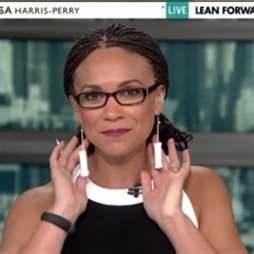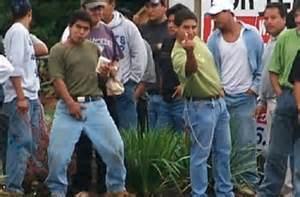
Quote at the top of the page on the Bias-Free Language Guide, from one of our greatest philosophers:
In a democracy, recognition matters. Everyone wants to be seen as who they are. If they are not, then it’s impossible for them to enjoy the experience of being full citizens. -Melissa Harris-Perry
Campus Reform: “American,” “illegal alien,” “foreigners,” “mothering,” and “fathering” are just a handful of words deemed “problematic” by the University of New Hampshire’s Bias-Free Language Guide.
According to the university’s website, the guide “is meant to invite inclusive excellence in [the] campus community.”
The guide defines words such as “homosexual” as “problematic,” offering “Same Gender Loving” as a more inclusive substitute. Similarly, a lack of gender-neutral bathrooms is, according to the university, “ciscentrism.”
The university defines “ciscentrism” as “[a] pervasive and institutionalized system that places transgender people in the ‘other’ category and treats their needs and identities as less important than those of cisgender people.” “Ciscentrism,” according to the university, “includes the lack of gender-neutral restrooms, locker rooms, and residences.”

This is problematic? Too bad, so sad!
Saying “American” to reference Americans is also problematic. The guide encourages the use of the more inclusive substitutes “U.S. citizen” or “Resident of the U.S.”
The guide notes that “American” is problematic because it “assumes the U.S. is the only country inside [the continents of North and South America].” (The guide doesn’t address whether or not the terms “Canadians” and “Mexicans” should be abandoned in favor of “Residents of Canada” and “Residents of Mexico,” respectively.)

The guide clarifies that saying “illegal alien” is also problematic. While “undocumented immigrant” is acceptable, the guide recommends saying “person seeking asylum,” or “refugee,” instead. Even saying “foreigners” is problematic; the preferred term is “international people.”
Using the word “Caucasian” is considered problematic as well, and should be discontinued in favor of “European-American individuals.” The guide also states that the notion of race is “a social construct…that was designed to maintain slavery.”
The guide also discourages the use of “mothering” or “fathering,” so as to “avoid gendering a non-gendered activity.”
Even saying the word “healthy” is problematic, the university says. The “preferred term for people without disabilities,” the university says, is “non-disabled.” Similarly, saying “handicapped” or “physically-challenged” is also problematic. Instead, the university wants people to use the more inclusive “wheelchair user,” or “person who is wheelchair mobile.”
Using the words “rich” or “poor” is also frowned upon. Instead of saying “rich,” the university encourages people to say “person of material wealth.” Rather than saying a person is “poor,” the university encourages its members to substitute “person who lacks advantages that others have” or “low economic status related to a person’s education, occupation and income.”
Terms also considered problematic include: “elders,” “senior citizen,” “overweight” (which the guide says is “arbitrary”), “speech impediment,” “dumb,” “sexual preference,” “manpower,” “freshmen,” “mailman,” and “chairman,” in addition to many others.
The Bias-Free Language Guide includes a link to the university’s “Gender Pronouns Guide,” which the university appears to have borrowed from the University of Wisconsin-Madison. UNH offers the guide as “a starting point for using pronouns respectfully.”

The Gender Pronouns Guide uses a chart to explain how to use “nonbinary pronouns” such as spivak pronouns or ze/zie/hir sets. For example, instead of saying the sentence “their eyes gleam” (using binary pronouns), the sentence would become “hir [pronounced identically to “here,” and “hear”] eyes gleam.” Nonbinary pronouns, the guide explains, “are often used by trans, genderqueer, and gender non-conforming people.”
In addition to the guides on bias-free language and gender pronouns, the university also offers faculty training to combat microaggressions. The training, the university says, “explores the danger of microaggressions and the cumulating effects on those being discriminated against.”
Inviting “inclusive excellence” is apparently not all that abandoning the use of the word “American” will do for the university. In the university’s words, “Each step of inclusion moves us closer to a full democracy.”
The university defines “inclusive language” as “communication that does not stereotype or demean people based on personal characteristics.” The university website encourages readers to understand that the guide “is not a means to censor but rather to create dialogues of inclusion where all of us feel comfortable and welcomed.”
DCG

